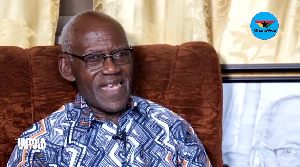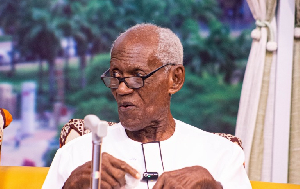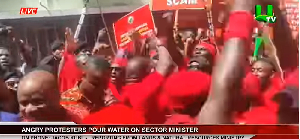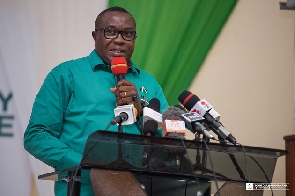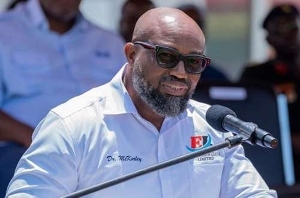Funsi (Upper West) 2 March, '99- The chiefs and people of the south Sissala area of the Upper West region have renewed their appeal to the government to create a separate district for them. The area is presently divided between the Wa and Nadowli districts. Kuoro Nwadei Bayong, divisional chief for the Funsi traditional area said at a press conference at Funsi yesterday that an earlier appeal in 1988 for the restoration of Funsi district, as the area was known under the first republic, has not received any response. He said the area is marginalised and neglected because of its division between two districts which has led to its enormous potential in food and animal production not being tapped. Citing examples of the neglect, Kuoro Bayong said the people in the area are a different ethnic group and it is difficult for the Sissala assembly members to contribute effectively during assembly deliberations, which are carried out in either Wali or Dagaari. He said the only decent school in the area was provided by the Catholic Church, and all the senior secondary schools in the region are concentrated in Wa, hence " our children are unable to gain admission into them." On health care Kuoro Bayong said there are only two clinics in the area, one of which is poorly staffed, while in other parts of the region a clinic can be found within a radius of every six kilometres. Other areas of neglect, according to the chief are agriculture and water supply. In a related development, Kajokperi Kundungu, a divisional chief has also appealed for the creation of a separate traditional council for the area. He explained that for reasons of administrative convenience, the Dagaaba's and Sisala's in the area were brought under the Wala traditional council by the colonial government in 1933. However, for over 20 years now the Dagaaba areas have had their paramountcies restored to them while the Sisaala's continue to remain under the Wala traditional council against their will.
Funsi (Upper West) 2 March, '99- The chiefs and people of the south Sissala area of the Upper West region have renewed their appeal to the government to create a separate district for them. The area is presently divided between the Wa and Nadowli districts. Kuoro Nwadei Bayong, divisional chief for the Funsi traditional area said at a press conference at Funsi yesterday that an earlier appeal in 1988 for the restoration of Funsi district, as the area was known under the first republic, has not received any response. He said the area is marginalised and neglected because of its division between two districts which has led to its enormous potential in food and animal production not being tapped. Citing examples of the neglect, Kuoro Bayong said the people in the area are a different ethnic group and it is difficult for the Sissala assembly members to contribute effectively during assembly deliberations, which are carried out in either Wali or Dagaari. He said the only decent school in the area was provided by the Catholic Church, and all the senior secondary schools in the region are concentrated in Wa, hence " our children are unable to gain admission into them." On health care Kuoro Bayong said there are only two clinics in the area, one of which is poorly staffed, while in other parts of the region a clinic can be found within a radius of every six kilometres. Other areas of neglect, according to the chief are agriculture and water supply. In a related development, Kajokperi Kundungu, a divisional chief has also appealed for the creation of a separate traditional council for the area. He explained that for reasons of administrative convenience, the Dagaaba's and Sisala's in the area were brought under the Wala traditional council by the colonial government in 1933. However, for over 20 years now the Dagaaba areas have had their paramountcies restored to them while the Sisaala's continue to remain under the Wala traditional council against their will.




